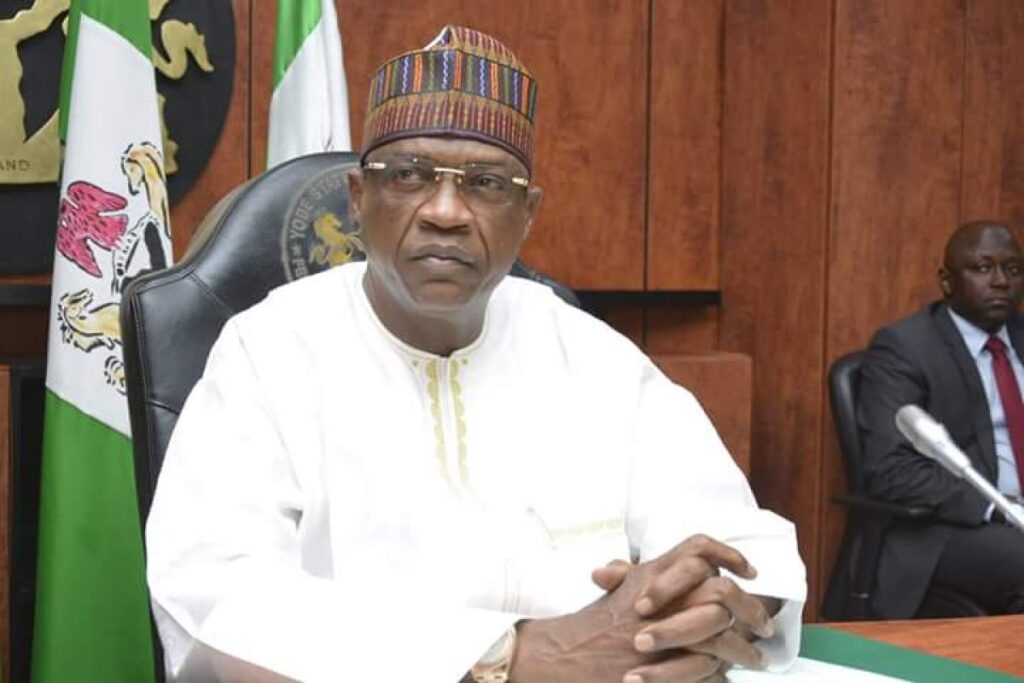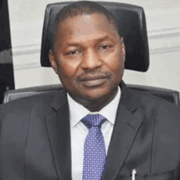
The Minister of Police Affairs, Senator Ibrahim Gaidam, has reiterated the federal government’s commitment to implementing an effective monitoring and evaluation framework for Nigeria’s police reform roadmap.
Speaking at a stakeholders’ engagement on police reforms in Abuja, Gaidam emphasized the ministry’s dedication to coordinating donor support strategically to prevent duplication of efforts, enhance collaboration, and ensure the efficient allocation of resources.
The event brought together key stakeholders, including the Chairman of the Police Service Commission, the German Ambassador to Nigeria, and the Director-General of the Institute of Police Studies. Also in attendance were representatives from the offices of the National Security Adviser, Nigeria Police Force, Nigeria Correctional Service, Nigeria Police Trust Fund, CLEEN Foundation, and the United Nations Development Programme (UNDP).
A statement issued by the ministry’s Deputy Director of Information and Public Relations, Bolaji Kazeem, highlighted the initiative as part of President Bola Ahmed Tinubu’s directive to reform the Nigeria Police Force in line with global best practices.
“This event aligns with our unwavering commitment to fulfilling the mandate set forth by President Tinubu to reform the Nigeria Police in accordance with international standards. Furthermore, we will actively promote adherence to the principles of trust and confidence, which are indispensable to successful policing,” Gaidam stated.
The minister underscored that police reform is a critical priority for the current administration, emphasizing that in October 2023, President Tinubu tasked the Ministry of Police Affairs, the National Security Adviser, and the Police Service Commission with developing a comprehensive blueprint for sustainable police reforms.
“This mandate reflects the administration’s recognition of the urgent need for transformation within our policing system. This initiative is designed to reshape the narrative surrounding police reforms in Nigeria, moving beyond rhetoric to achieve tangible progress,” he added.
Gaidam noted that the core objective of the stakeholders’ engagement was to foster a cross-sectoral consensus on police reforms. He stressed that lasting change requires broad-based participation and public education on policing matters to build nationwide support for the reform agenda.
“We recognize that true change cannot occur in isolation; it requires the involvement of various segments of society. By engaging different stakeholders, we aim to educate the general public about the intricacies of policing. This education is essential for fostering consensus and creating a nationally owned reform blueprint,” he said.
He further assured that the engagement would not be a one-off event but an ongoing process throughout the reform implementation. He emphasized that public input would be continuously sought to ensure that the reforms reflect the needs and expectations of communities.
Speaking at the event, the German Ambassador to Nigeria, Annett Günther, highlighted Germany’s substantial contributions to strengthening police training in Nigeria. She revealed that the German government has refurbished and equipped training facilities in Lagos, Enugu, Abuja, and Kaduna, training over 1,000 police trainers in modern adult-learning techniques, leadership, human rights, crisis communication, and gender-sensitive policing.
“Through our work with civil society organizations and national institutions, we have promoted key governance reforms, such as the establishment of the Police Transformation and Reform Office (PORTO), now succeeded by the Police Reform Secretariat, which drives the reform agenda forward,” she stated.
The stakeholders’ engagement marks a crucial step in the ongoing efforts to transform Nigeria’s policing system, ensuring a more accountable, transparent, and community-centered approach to law enforcement.




















Comments